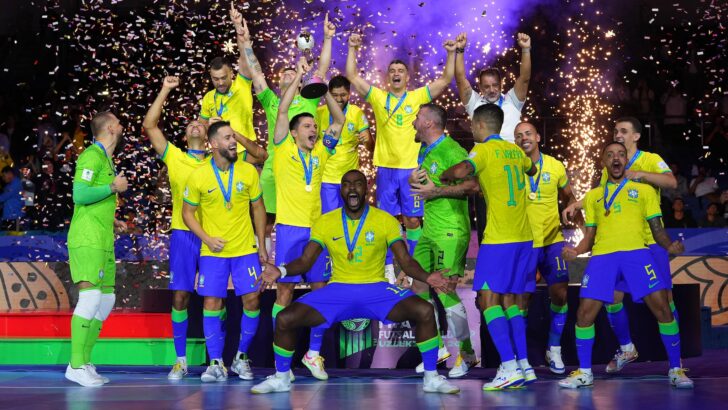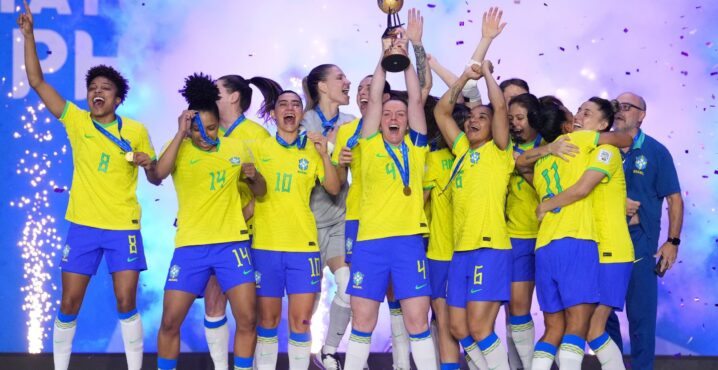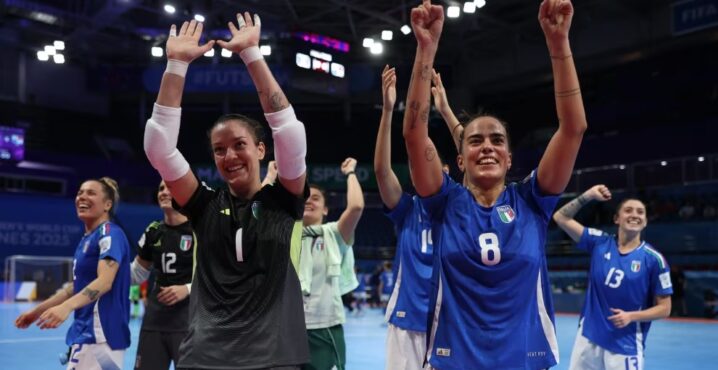Estimated reading time:5 minutes, 55 seconds
FIFA invites global bids for futsal’s top events, with nations like Morocco, Kuwait, France, and Indonesia exploring opportunities to host. What could these tournaments mean for futsal’s future?
A New Era of Opportunity for Global Futsal
FIFA has officially launched the bidding process for the 2028 FIFA Futsal World Cup and the 2029 FIFA Women’s Futsal World Cup. This marks the start of a global competition among interested nations to stage futsal’s premier international tournaments for men and women. FIFA’s announcement outlines key requirements and deadlines for member associations, and has already sparked interest from several countries. It also raises exciting possibilities about how new host markets could impact the growth of futsal worldwide.
(Main picture: Brazil wins the 2024 FIFA Futsal World Cup, Uzbekistan – source of the image: FIFA)
Tournament Requirements and Timeline
The 2028 men’s Futsal World Cup will run from 7 to 29 October 2028. FIFA has invited expressions of interest from member associations, with confirmed bids expected in late 2025 and host selection in 2026. The 2029 Women’s Futsal World Cup, the second edition after the inaugural 2025 event in the Philippines, will follow a similar process.
Host nations are expected to provide 3–5 indoor arenas with proper futsal flooring, media infrastructure, and seating capacity. Training venues, transport, accommodation, and legacy planning are all central criteria. The men’s tournament may expand to 32 teams, while the women’s edition is expected to host 16.
Who Might Host? Confirmed and Likely Bidders
Morocco
The Royal Moroccan Football Federation has confirmed its intent to bid for the 2028 men’s tournament. With recent experience hosting FIFA Club World Cups and the upcoming 2030 men’s World Cup (with Spain and Portugal), Morocco offers ready infrastructure and a dominant national futsal program in Africa.
Kuwait
The Kuwait FA has also publicly declared its intention to bid for 2028, with support from the national government. Kuwait hosted the 2022 AFC Futsal Asian Cup and sees futsal as a strategic growth area for Gulf sport.
France and Europe
France failed with their bid to host the UEFA Futsal EURO 2026. however, many futsal stakeholders will be hoping the nation bids for the next world cup after qualifying for the Futsal World Cup for the first time in 2024. With a growing domestic league and experience hosting UEFA events, a French bid would mark a commercial and cultural step forward for European futsal.
Southeast Asia: Indonesia or Malaysia
Both Indonesia and Malaysia have passionate futsal fanbases and active domestic leagues. Indonesia’s Pro Futsal League continues to expand in popularity, while Malaysia’s Premier Futsal League is working to professionalize and strengthen its national structure. Though neither country has confirmed a bid, our sources tell us that recent infrastructure growth, successful regional tournaments, and strong spectator engagement have sparked discussions among stakeholders about the feasibility and benefits of bidding for a future Futsal World Cup.
India
India has not announced a bid but is increasingly viewed as a long-term opportunity for futsal expansion. The All India Football Federation (AIFF) has demonstrated a strong commitment to developing futsal through several key initiatives.
The AIFF’s Vision 2047 strategic roadmap outlines plans to establish a comprehensive futsal ecosystem, including the introduction of national-level competitions for both senior and youth categories. This includes the AIFF Futsal Club Championship, which has been held annually since its inception, providing a platform for clubs across the country to compete at a high level.
In addition to senior competitions, the AIFF has placed significant emphasis on youth development. The federation has structured youth leagues across various age groups, such as U-13, U-15, U-17, and U-19, to ensure a steady pipeline of talent. These leagues are designed to provide young players with regular competitive matches, fostering skill development and identifying potential national team prospects.
Furthermore, the AIFF has initiated the ‘Baby League’ concept, targeting children as young as five years old. This grassroots program aims to introduce futsal at an early age, emphasizing enjoyment and fundamental skills to build a strong foundation for future growth
Hosting a Futsal World Cup could catalyse nationwide infrastructure upgrades, youth participation, league development, and sponsorship interest, mirroring growth seen in countries like Uzbekistan after their hosting in 2024.
Women’s World Cup 2029
Confirmed bids are not yet public, but potential hosts include Spain, Brazil, Portugal, and possibly Thailand. Observers expect greater interest after the 2025 edition in the Philippines
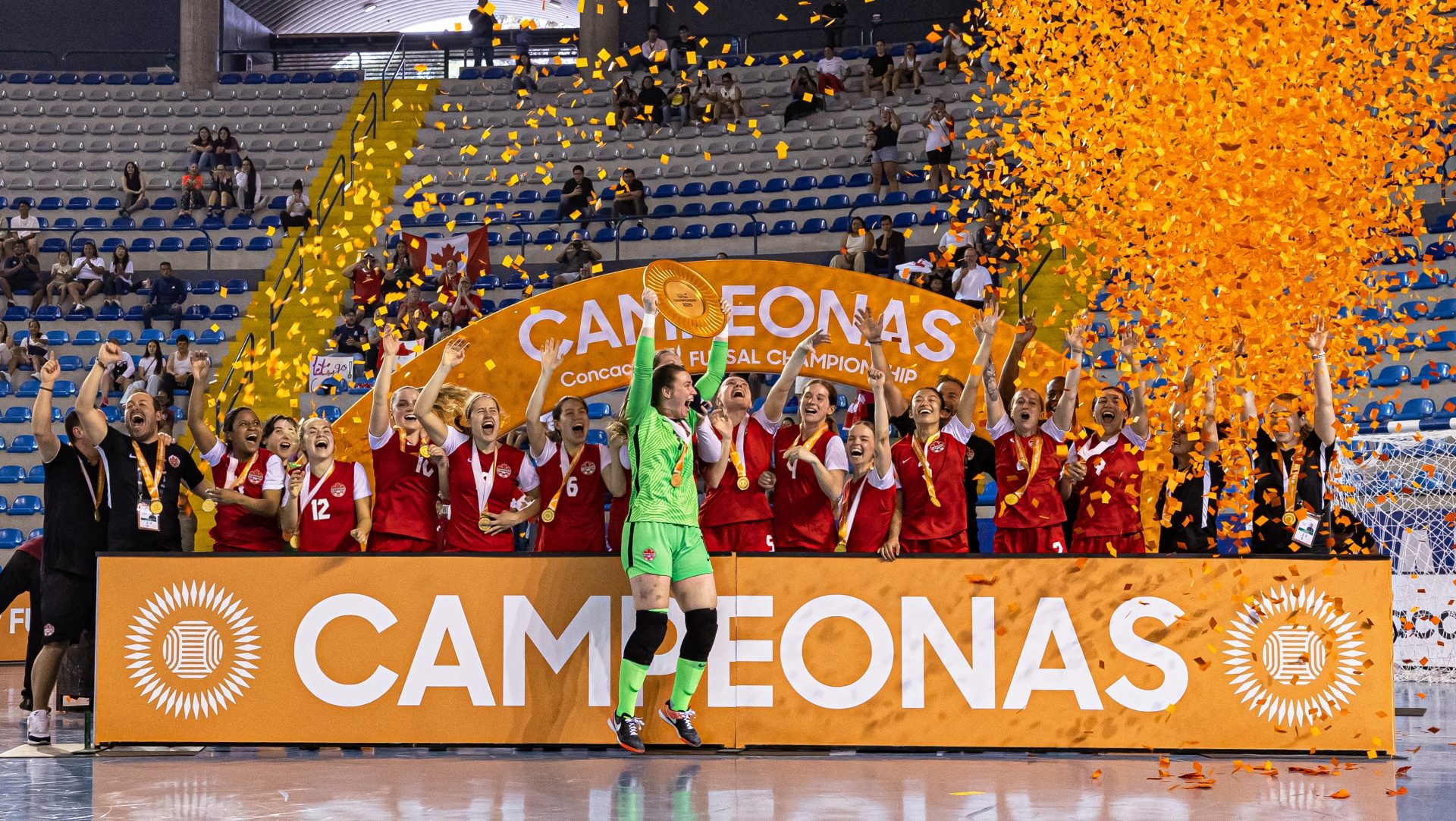
Canada wins the 2025 CONCACAF Women’s Futsal Championship, Guatemala – source of the image: CONCACAF
Federation Reactions
Morocco and Kuwait’s bids have drawn enthusiastic support from national leaders and fans. European federations have praised FIFA’s proactive planning. In Asia, sports media in Indonesia and Malaysia are calling on local associations to seize this moment to boost domestic leagues and infrastructure.
For the women’s game, the prospect of hosting the 2029 World Cup is energizing federations in Europe, South America, and Asia to scale up support and visibility.
The Impact of Hosting on Futsal Growth
Hosting a futsal World Cup can catalyse dramatic change. From arena construction and school court development to media coverage and league expansion, countries that host these events often see long-term benefits.
- In Morocco, hosting would consolidate its leadership in African futsal and help to ignite additional interest across the region following futsal’s inclusion in the Youth Olympics in Senegal in 2026.
- In Kuwait, it could elevate futsal across the Gulf region.
- In India or Southeast Asia, a World Cup could introduce futsal to tens of millions of new players and fans.
- In France/Europe it could drive commercialisation and professionalisation.
The same is true for the 2029 Women’s World Cup. If hosted by Spain, Brazil, or another established futsal country, the event could set new records for women’s futsal attendance and sponsorship. If hosted by an emerging nation, it could spark domestic programs that didn’t exist before.
The FIFA Futsal World Cups in 2028 and 2029 represent more than just top-tier tournaments, they are strategic opportunities for countries to elevate their standing in the global futsal landscape. Whether the hosts are development-focused or commercially ambitious, their legacy will help define the next decade of the sport. Full details for expressions of interest are here: https://digitalhub.fifa.com/m/7f8a80ce0aad7990/original/Circular-1931_Expression-of-interest-in-hosting-upcoming-FIFA-tournaments.pdf
Organ Donation
Futsal Focus is a supporter of Dáithí Mac Gabhann and his family’s campaign to raise awareness of Organ Donation. We encourage our readers to learn more about Organ Donation: https://www.organdonation.nhs.uk/
Futsal Focus
You can read more articles about International Futsal by going to the top navigation bar or by clicking here
If you like this article and would like to keep updated on Futsal news, developments, etc. You can now follow Futsal Focus via Google News. By following our page which will send you an alert as soon as we publish an article. Please click here and follow us on Google.
You can also keep updated on Futsal news, developments by submitting your email below in the Subscribe to Futsal Focus option.
Follow Futsal Focus by clicking on Facebook, Twitter, or Instagram or on the social media buttons on the website




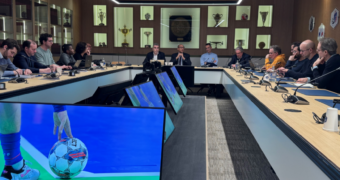



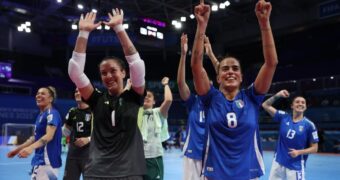

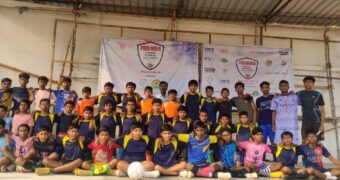





![Validate my RSS feed [Valid RSS]](https://www.futsalfocus.net/wp-content/uploads/2020/01/valid-rss-rogers.png)

